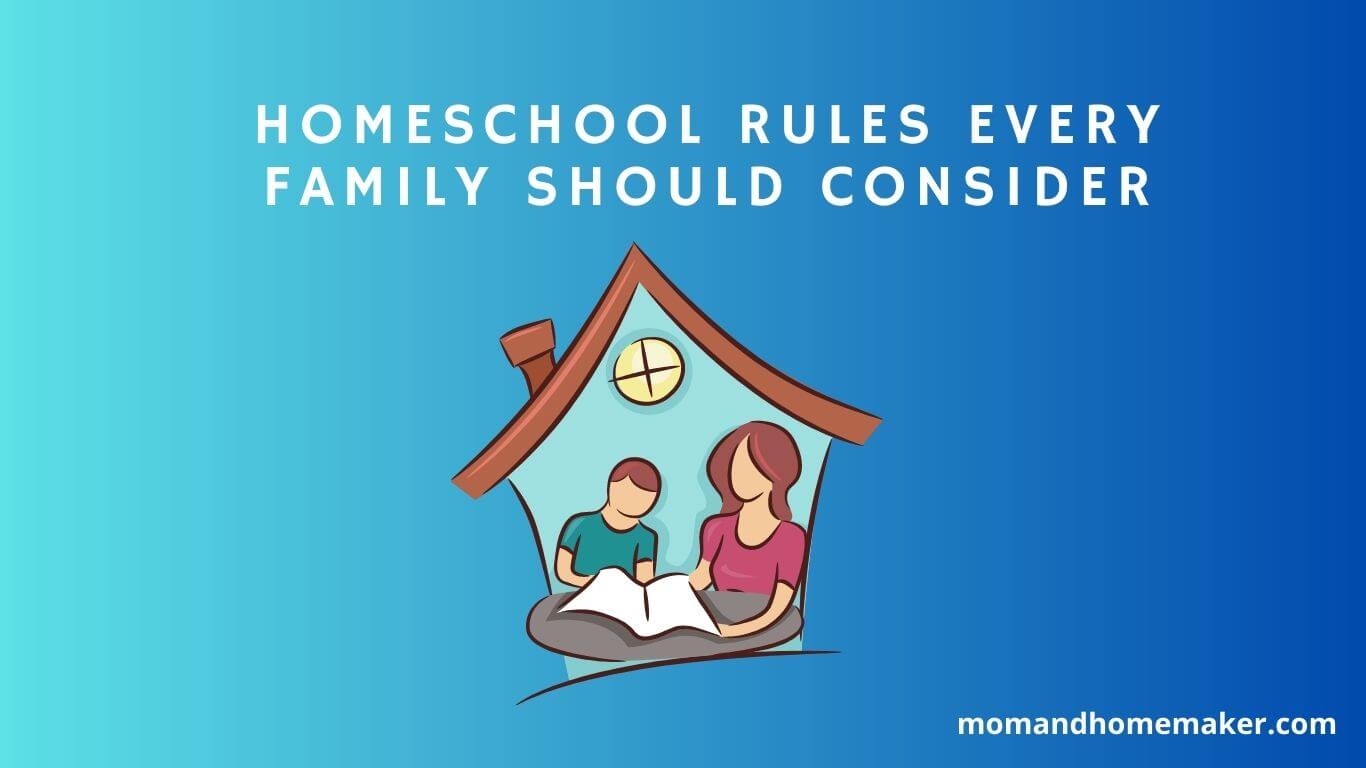
Establishing Good Household Rules: Creating Harmony and Structure at Home
Creating a peaceful and functional home environment requires more than just comfortable furniture and a well-stocked kitchen. It necessitates the establishment of good household rules that foster respect, responsibility, and clear communication among all members. These rules, when thoughtfully implemented and consistently enforced, can significantly reduce conflict, promote cooperation, and cultivate a more harmonious living space. This article delves into the importance of good household rules, providing practical guidance on how to develop and maintain them effectively.
The Importance of Good Household Rules
Good household rules aren’t about stifling individual expression or creating a rigid, oppressive atmosphere. Instead, they serve as a framework for shared living, ensuring that everyone’s needs and rights are considered. They provide clarity on expectations, reduce ambiguity, and minimize misunderstandings, which are often the root cause of household disputes. Without clear good household rules, resentment can build, leading to a breakdown in communication and overall family well-being.
Consider the scenario of shared chores. Without established rules, tasks may be neglected, leading to frustration and finger-pointing. A simple rule outlining each person’s responsibilities and a schedule for completion can prevent such issues. Similarly, rules regarding noise levels, screen time, and guest policies contribute to a more respectful and comfortable living environment for everyone.
Furthermore, good household rules teach valuable life skills, particularly for children and young adults. They learn about responsibility, accountability, and the importance of contributing to a shared space. These skills are transferable to other areas of life, such as school, work, and future relationships. By adhering to good household rules, individuals develop a stronger sense of self-discipline and respect for others.
Developing Effective Household Rules
Creating effective good household rules requires a collaborative approach. Involving all household members in the process ensures that everyone feels heard and that the rules reflect the needs and concerns of the entire group. Here’s a step-by-step guide to developing good household rules:
Identify Core Values
Start by identifying the core values that you want to uphold in your home. These might include respect, honesty, responsibility, kindness, and communication. These values will serve as the foundation for your good household rules. Discuss these values as a family and come to a consensus on what they mean in practice.
Hold a Family Meeting
Schedule a family meeting where everyone can contribute to the rule-making process. Create a safe and open environment where everyone feels comfortable expressing their opinions and concerns. Encourage active listening and respectful dialogue. Explain that the goal is to create good household rules that benefit everyone.
Brainstorm Potential Rules
During the meeting, brainstorm potential rules related to various aspects of household life. Consider areas such as chores, meal times, screen time, noise levels, guest policies, and personal space. Encourage everyone to suggest rules and explain why they believe they are important. Write down all suggestions without judgment.
Prioritize and Refine
Once you have a list of potential rules, prioritize them based on their importance and relevance. Refine the wording of each rule to ensure clarity and avoid ambiguity. Make sure that the rules are specific, measurable, achievable, relevant, and time-bound (SMART). For example, instead of saying “Keep the house clean,” a more specific rule would be “Each person is responsible for cleaning their own room once a week.”
Consider Age and Ability
When establishing good household rules, it’s crucial to consider the age and abilities of each household member. What is appropriate for a teenager may not be realistic for a young child. Adjust the rules accordingly to ensure that everyone can reasonably comply. Offer support and guidance to help younger children understand and follow the rules. [See also: Age-Appropriate Chores for Children]
Write it Down
Once you’ve finalized the good household rules, write them down in a clear and concise manner. Post the rules in a visible location, such as on the refrigerator or a family bulletin board. This serves as a constant reminder of the expectations and helps to prevent misunderstandings. Consider creating a visually appealing poster or document to make the rules more engaging.
Enforcing Household Rules Consistently
Creating good household rules is only half the battle. The other half is consistently enforcing them. Inconsistency can undermine the effectiveness of the rules and lead to confusion and resentment. Here are some tips for enforcing good household rules consistently:
Establish Consequences
Clearly define the consequences for violating each rule. Consequences should be fair, reasonable, and consistently applied. They should also be age-appropriate and related to the infraction. For example, if a child fails to complete their assigned chores, a consequence might be a temporary loss of screen time. For adults, consequences might involve taking on extra household responsibilities. [See also: Positive Discipline Techniques for Children]
Communicate Clearly
Communicate the good household rules and consequences clearly and frequently. Remind everyone of the rules on a regular basis, especially when there is a risk of them being forgotten or ignored. Use positive reinforcement to encourage compliance. Praise and reward individuals who consistently follow the rules. This reinforces positive behavior and motivates others to do the same.
Lead by Example
Parents and other adult members of the household should lead by example by consistently following the good household rules themselves. This demonstrates the importance of the rules and sets a positive example for children. When adults fail to adhere to the rules, it undermines their authority and makes it more difficult to enforce them on others. Show that good household rules apply to everyone, regardless of age.
Be Consistent and Fair
Consistency is key to effective enforcement. Apply the consequences for violating the rules fairly and consistently, regardless of who is involved. Avoid making exceptions or playing favorites. When individuals see that the rules are enforced consistently, they are more likely to take them seriously and comply with them. This fosters a sense of fairness and justice within the household.
Review and Adjust
Good household rules are not set in stone. As your family grows and changes, the rules may need to be reviewed and adjusted to reflect evolving needs and circumstances. Schedule regular family meetings to discuss the effectiveness of the rules and make any necessary revisions. This ensures that the rules remain relevant and beneficial for everyone. Flexibility is essential for maintaining a positive and harmonious home environment.
Examples of Good Household Rules
Here are some examples of good household rules that can be adapted to suit your family’s specific needs:
- Chores: Each person is responsible for completing their assigned chores by a specific deadline.
- Meal Times: Everyone is expected to be present at the dinner table and engage in conversation.
- Screen Time: Screen time is limited to a specific number of hours per day and restricted during mealtimes and before bed.
- Noise Levels: Maintain reasonable noise levels, especially during quiet hours.
- Guest Policies: Guests are welcome, but must be approved in advance and respect household rules.
- Personal Space: Respect each other’s personal space and belongings.
- Communication: Communicate openly and honestly with each other.
- Cleanliness: Keep shared spaces clean and tidy.
- Respect: Treat each other with respect and kindness.
- Bedtime: Adhere to established bedtime routines.
Benefits of Implementing Good Household Rules
The benefits of implementing good household rules extend far beyond simply maintaining order and cleanliness. They contribute to a more positive, supportive, and harmonious home environment for everyone. Some of the key benefits include:
- Reduced Conflict: Clear rules and expectations minimize misunderstandings and disputes.
- Improved Communication: Open communication is encouraged and facilitated.
- Increased Responsibility: Individuals learn to take responsibility for their actions and contributions.
- Enhanced Respect: Mutual respect and consideration are fostered.
- Greater Harmony: A more peaceful and harmonious living environment is created.
- Stronger Family Bonds: Shared values and expectations strengthen family bonds.
- Improved Life Skills: Valuable life skills such as responsibility, accountability, and self-discipline are developed.
Conclusion
Establishing good household rules is an investment in the well-being and happiness of your family. By involving everyone in the rule-making process, enforcing the rules consistently, and reviewing them regularly, you can create a home environment that is both structured and supportive. Remember that good household rules are not about control or restriction, but about creating a framework for shared living that benefits everyone. The implementation of well-thought-out good household rules promotes respect, responsibility, and clear communication, leading to a more harmonious and fulfilling life at home.

